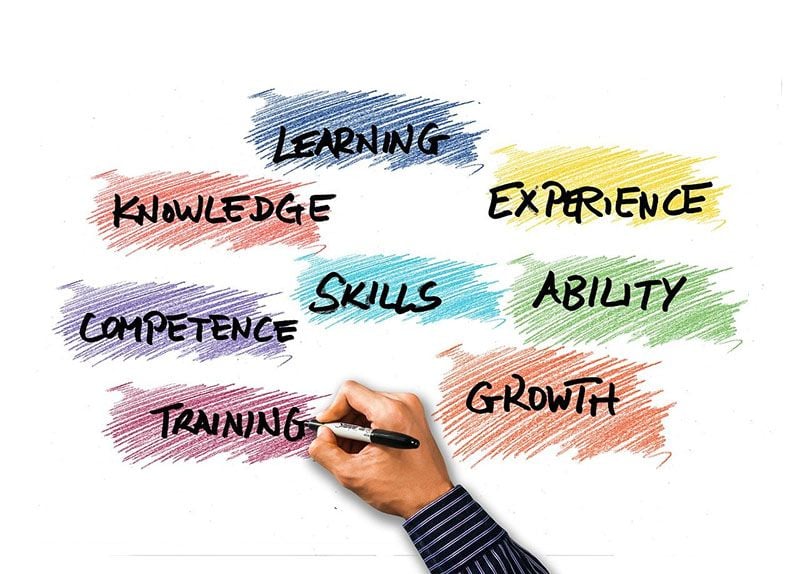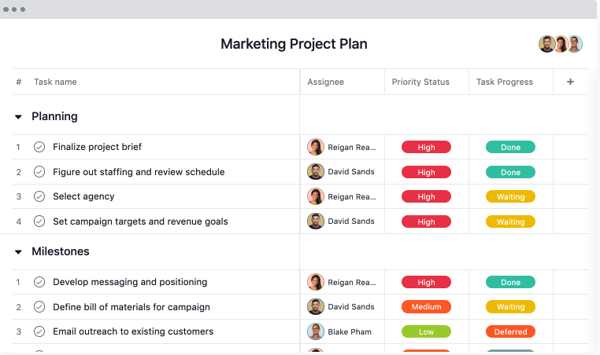10 essential skills to work in human resources

If you work in people management and you're looking for a professional to expand your team, you must to consider very carefully the human resources skills to look for in candidates. These skills range from the more technical to the more social, such as empathy or negotiation skills. The first easier to acquire than the second, but having a balance of the two is important when working with people.
Below we looked at the most sought-after essential skills for working in human resources departments and why they are important.
Definition of the essential skills in human resources
The Oxford Dictionary offers several definitions for the word skill. The two that make the most sense in terms of human resources as follows:
- The ability to do something well.
- A particular ability or type of ability.
The skills required in human resources are, therefore, the abilities and capacities a person possesses and that enable them to perform a specific job. On this basis, every professional is unique as is their contribution to the team and the department.
For some years now, the personnel department has played a much more strategic role within companies, meaning that its professionals need certain skills that go way beyond those taught in the classroom.
Performing the functions of a human resources department requires a range of abilities that include both technical (using payroll programmes, knowledge of employment laws, etc.) and social skills (empathy, communication, leadership, etc).
In an interview, Segunda López Toledo, HR Director in Tech Data Iberia, responded that there are several qualities of professional needs to work in HR: “there are a few, especially a particular sensitivity given the areas they deal with, to be service orientated, have a general understanding of psychology, lots of common sense, a good measure of frustration tolerance, a results-orientated mindset, communication, boundless empathy as well as assertiveness.
An explosive cocktail if the formula is not well designed with the right dosage of each component.
Types of skills for human resources
Generally speaking, human resources competencies are divided into two groups: soft skills and hard skills.
Soft skills are those abilities that are related to emotional intelligence and someone's personality. They enable someone to easily adapt to working environment, the corporate culture or the dynamics with the other employees.
Some examples are, the ability to work in a team, conflict resolution, active listening, proactivity, to name a few.
In contrast, hard skills are the technical knowledge that a professional acquires through study and that enable them to perform an activity. Here we could include, for example, the use of human resources management software, use of specific HR Excel templates, knowledge and employment laws, etc.
Both types are necessary and complement each other.
Even so, companies are now placing more and more value on soft skills and particularly in the field of human resources. LinkedIn’s Global Talent Trends 2019 report revealed that of the four most important trends, soft skills top the list. And ultimately, working life is actually based on relationships with people so it's important to develop social skills to preserve a good working environment.
Skills that every HR professional should have
There are different kinds of professional HR profiles in the department, but generally speaking, all of them should possess these 10 skills, at least. The first seven are soft skills and the last three are considered to be hard skills.
1. Active listening
The HR department is a bridge between employees and company directors so it’s important to practice active listening to convey messages, in both directions.
This means paying attention to the message received as a whole, verbal and non-verbal, and interpret it appropriately. In this way you’ll obtain valuable information, create a better working climate and boost the team’s level of trust and commitment.
Active listening can be done in many ways, but creating channels for smooth communication, and through which employees can express themselves, is the most important of all.
This can be achieved through an email, regular meetings or through specialised team communication apps like Slack, for example.
2. Learning capacity
The world is in constant evolution and we are obliged learn and adapt to new circumstances. The same can be said for the work place and in the human resources sector. A good professional must therefore be able to gain new knowledge and abilities at any time during their career.
New technologies, for example, push us to use programmes and tools that involve some learning. The same can be said of new employment laws or decrees that may arise.
Staying up to date is important and we should never stop learning.
3. Negotiation skills
Another of the most important skills for human resources is the ability to resolve conflicts and negotiate. People management sometimes involves mediating conflicts, offering alternatives and even saying “no.” The key to this, however, is how a professional deals with such situations. Being a good negotiator means being able to understand the other person, knowing when to give some ground and finding the best solution for both parties.
Negotiation is part of everyday life in the department: from salary rises to annual leave and contract renewals. It’s a constant give-and-take.
4. Analytical and organisational skills
The tasks performed in a human resources department require a good deal of organisation and analytical skills to achieve established objectives. Talent management is increasingly more important in a company’s overall strategy, so people that work in department must be able to translate these goals into specific actions that enable them to achieve the desired results.
5. Team management
Being able to communicate and coordinate others is another cornerstone skill.
Good team management reduces conflict, increases employees’ trust in the company and improves the work climate in general. Work climate surveys software are useful in gauging employees’ morale as well as to obtain valuable information on how to introduce improvements and make changes.
6. Talent management
A companies talent is its most valuable asset and the HR department is responsible for managing it. A good professional should be able to identify, acknowledge, manage, develop and foster talent in the organisation. A “sense of smell” is vital when carrying out selection processes and interviews.
In addition, using a recruitment software is a huge help as it enables you to capture the impressions made during the interview, make reports and be able to analyse them when it comes to making decisions.
7. Empathy
Empathy is a person’s ability to put themself in somebody else's shoes.
This is one of the most important skills in human resources and any member of the team should practice it and harness it. It enables you to get closer to people, understand their problems and find solutions to solve them.
It's important to show empathy and manage delicate situations with tact, such as when communicating an employee’ dismissal, for example. Putting yourself in the other person's shoes and knowing how to manage the situation is vital.
8. New technologies
Usage of new technologies is one of the most coveted hard skills today. HR departments are becoming increasingly more convinced that the way to optimise their time and reach objectives is through the digitisation of the department.
The most sought-after candidates are therefore professionals who are already using human resources management software.
Human resources professionals should be able to use the following technologies:
- ATS - recruitment management software.
- CRM - a relationship management platform that includes both employees and the company's clients.
- NPS and work climate tools - professionals should be aware of the different tools available to get employee feedback and develop plans to improve satisfaction levels.
Collaborative tools - it’s vital that HR professionals are familiar with remote-working tools. - Some of the most popular tools for sharing editable documents among several team members include Google’s G-Suite, or project management systems such as Asana or Trello for task management and timekeeping.

9. Employer branding
An employer’s brand reputation has become one of the greatest concerns of organisations. A poor image can increase recruitment costs by 10%, according to a study by Harvard Business Review (2016), as 83% of professionals research the company before applying for a job. The ability to develop plans and strategies that position the company as a great place to work is becoming more and more valuable.
10. Data analysis
Big data has burst on to the human resources scene in full force, and is, for that matter, known as people analytics. And this technology enables us to capture a huge amount of data on performance, satisfaction or employees’ needs. On one hand, to get the most out of this it’s important to have a suitable technology to filter this data, and professionals who are equipped to interpret it and draw conclusions. You don’t need to be an expert, just know enough about data analysis and be able to prepare reports based on data.
These are therefore the 10 of the most important skills for HR professionals.
They will be present in “different quantities” depending on the person, but all of them, even soft skills, can be developed. It’s important to find a balance and be open to learning and improvement.

